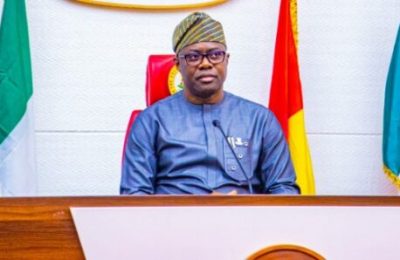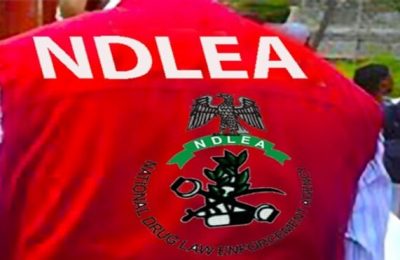
IN the aftermath of the #EndBadGovernance protests, I’ve embarked on three different trips from Ibadan to Lagos. On each trip, I was consciously looking out for possible activities in the filling stations that dot the left and right of the highway and all through the over 140-kilometre journey. But on each occasion, I didn’t see any major oil marketer dispensing fuel to customers. what you saw are some two-pump stations which could gallop the price to whatever they fancy. So I asked the question, what is wrong with the fuel supply system now that they said the ghost of fuel subsidy has been caged?
I remember the electioneering period when politicians mounted the podium and spoke glibly about their desire to end fuel subsidy. All the big, the “small” and not-so-small candidates on the list of the Independent National Electoral Commission (INEC) chorused subsidy must die. we were all happy at the death sentence on fuel subsidy and that the candidates were speaking the same language. Whether the election had produced an Atiku Abubakar, a Peter Obi or the eventual winner, Bola Ahmed Tinubu, the nation was sure the spirit of fuel subsidy would finally be excoriated.

Some industry experts and government operators were further encouraged by the realisation that the fuel subsidy regime according to the 2023 budget would terminate in June of the year. And by the data being paraded by the International Monetary Fund, which indicated the huge gains Nigeria stands to make if the subsidy was removed. The IMF had estimated that by the end of 2023, the country could save the sum of $2.1 billion, about N2 trillion, while the savings could ramp up to about $14.3 billion (about N11 trillion by 2025. enticing figures to managers of government business.
Riding on the growing sentiment against fuel subsidy as a drain on the government’s resources, President Bola Tinubu went ahead on the first day of his administration to pronounce ‘subsidy is gone’. But the divergent effects of that presidential pronouncement on the governments and the government have showcased the wide communication gap in the whole saga. While the Federal, State and local governments have been smiling home month after month with double and sometimes tripled allocations, the citizens have been having one misery and the other pilled on their necks. Sky-high inflation has kept galloping and when the twin policy of Naira devaluation, was introduced with the euphemism called floating, the damage became unbearable. Food insecurity became apparent as prices went out of the window. Transport fares have become so burdensome that you won’t be surprised to see multitudes resort to trekking long distances at the close of work.
The price of a litre of petrol which used to range between N180 and N200 depending on locations before the removal of the subsidy went up to N540 at the minimum around Lagos and N700 in many northern locations.
But the worst of all is the failure of the NNPC to make available the products. It’s like the NNPC is replicating the biblical Absalom scenario (1 Kings 12:11): The previous regime chastised you with a heavy burden; I will make it even heavier.
I decided to undertake that experiment on my different trips to Lagos to confirm if NNPC, which imports fuel into the country is even selling. I discovered that not even the NNPC sub-stations were dispensing fuel in the cities of Ibadan and most parts of Lagos and Ogun States. You hardly see NNPC stations and the major marketers dispense fuel. According to some industry watchers, the NNPC, after importing the petroleum products, leave them in the hands of private Tank Farm owners who dispense at will and deliberately distort the fuel supply chain. So in the past three weeks or so, the fuel supply chain has become more of an abiku in the South-West states and across Nigeria. It is more than a month in Abuja and the North. I heard that fuel price has risen to as much as N990 per litre in Ibadan and that the same price reigns across many North-Central States.
The unfortunate state of affairs is that the NNPC has no explanation for this horrible supply situation. Before now, we are used to the usual claim by the oil corporation that it has more than enough supply and that people should avoid panic buying. A situation where the NNPC sub-stations can’t even dispense fuel for two weeks has defeated the old refrain.
Now that the citizens are left to their fate and the whims of the fuel attendants, marketers and their under-the-table merchants, what excuse shall Mele Kyari and co give? In recent weeks, we have seen publicity items praising Kyari for “helping” the Nigerian economy by increasing crude supply. Another item came out last week, attributing the payment of over N3 trillion to the federation by the NNPC to his effective governance. I am sure the man knows he is not doing well and has resorted to self-praise because such a claim of efficiency is only noticeable to publicists in the employ of his corporation. The men on the streets of Nigeria cannot have such an impression about a man who has failed to see to the end of the reign of abiku in the fuel supply chain. A man who would not ensure the supply of crude to Africa’s biggest refinery located in his own country and one who would claim that importation of refined fuel is the best option for his country because there would not be a price differential in the locally refined and the imported products.
Some countrymen are even posing the question, what is the volume of dividends being returned by the NNPC equivalents in other lands? Are the returns by NNPC commensurate with those of its peers? Do we have the oil corporation of other oil-producing nations run down their refineries and force their countries to rely on imported fuel?
I agree with President Olusegun Obasanjo when he said one of the reasons Shell rejected his offer that they run the nation’s refineries was the corruption in the NNPC. And I dare say that we should invent another special award for President Tinubu if the refineries should work perfectly in his tenure. They said subsidy was the problem. It is now clear subsidy is not the problem. The subsidy was removed on May 29, 2023, yet sanity has refused to return to the sector. Why are we still having trouble getting these expensive products at the pump? Now that the subsidy was no more, have we known any respite in the fuel supply chain ever since? Fuel had dried up in the tanks of the stations in Abuja, Lagos and other cities. Yet the NNPC can only batter the citizens with grammar like under recovery and the like. It is clear to me that the corruption in the NNPC is the issue. The subsidy itself should have a simple calculation. There is what they call the oil swap programme. Nigeria was supposed to refine the 445,000 barrels per day reserved for local consumption in some refineries abroad. But each time they talk of landing cost, they say it as if they only went to those refineries to pay for already refined products and import the same here. What happens to the fine details of the swap deal?
Let me whisper it to the ears of Mr Kyari that some Nigerians are already claiming that the NNPC-induced fuel scarcity is a way of laying the foundation for the imposition of N1,200 per litre regime of fuel on Nigerians ahead of the launch of Dangote petrol in the Nigerian market. Whatever concoction he is packaging, let him realise that the citizens here are not a bunch of zombies. They may be patient, just as they were patient with the military. But one day, the cup was full.
READ ALSO: Lagos govt arrests six for urinating on rail track







